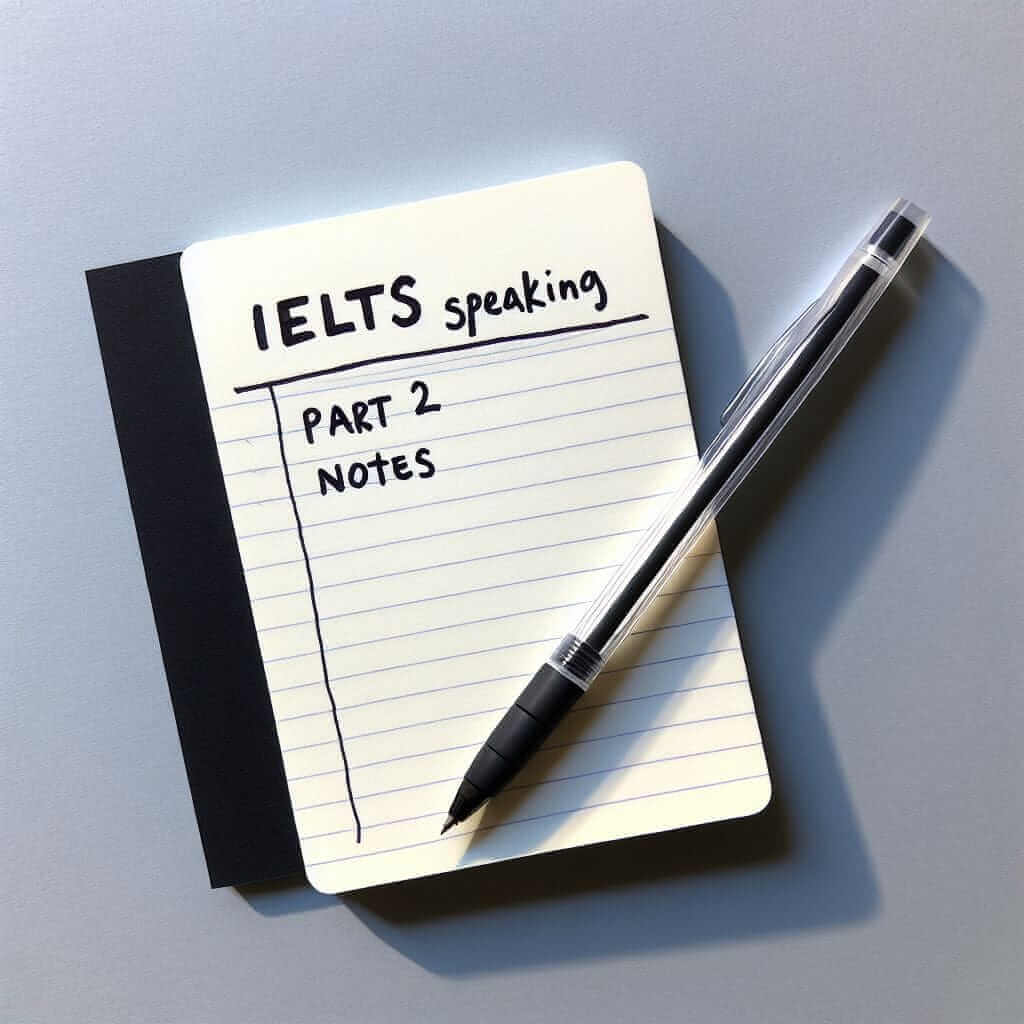The IELTS Speaking test can be nerve-wracking, especially Part 2 where you need to deliver a one- to two-minute speech on a given topic. A common query among test-takers is whether they can use notes during this section. Let’s delve into the rules and effective note-taking strategies for IELTS Speaking Part 2.
Understanding the Rules: Notes in IELTS Speaking Part 2
The good news is that you are allowed to make brief notes during the one-minute preparation time in Part 2 of the IELTS Speaking test. However, there are some important points to keep in mind:
- Time Limit: You have only one minute for both note-taking and brainstorming.
- Note Dependency: Avoid relying heavily on your notes. The goal is to speak naturally and maintain eye contact with the examiner, not to read directly from your notes.
- Note Retention: You cannot keep your notes after the preparation time. The examiner will collect them before you begin your speech.
Maximizing Your One Minute: Effective Note-taking Strategies
While taking notes is permitted, the key is to use this minute strategically to build a solid structure for your talk, not to script it word-for-word. Here’s how:
1. Identify Key Points:
- Instead of writing full sentences, jot down key words or phrases that will trigger your memory and guide you through the different aspects of the topic.
- For example, if the cue card asks you to describe a memorable trip, your notes might include: “Destination,” “Activities,” “Who with,” “Challenges,” and “Why memorable.”
2. Structure Your Talk:
- Use your notes to create a simple outline for your speech. This could involve:
- A brief introduction (setting the scene or introducing the topic).
- Two to three main points, each with supporting details or examples.
- A concise conclusion (summarizing your points or reiterating the main idea).
3. Include Relevant Vocabulary:
- If you think of specific vocabulary words related to the topic that you might forget, jot them down in your notes.
- This will help you incorporate a wider range of vocabulary into your speech, potentially boosting your Lexical Resource score.
Illustrative Example:
Let’s say the cue card asks you to “Describe a person who has had a significant influence on your life.” Here’s how your notes might look:
- Who: [Person’s name/relationship to you]
- Influence: [Positive qualities, skills they taught you, impact on your decisions]
- Specific Example: [A particular event/experience that demonstrates their influence]
- How you feel: [Grateful, inspired, motivated]
These brief points can guide your speech without making you sound scripted.

Tips for Effective Note-Taking:
- Use Abbreviations: Shorten words to save time (e.g., “exp” for “experience”).
- Mind Maps: If visual aids work for you, consider using a quick mind map to connect ideas.
- Practice Makes Perfect: The more you practice note-taking during IELTS Speaking Part 2 mock tests, the more confident and efficient you’ll become.
Conclusion:
Remember, notes are a tool to support your fluency and coherence, not a crutch. Use the one minute wisely to jot down key ideas and structure your thoughts. Focus on speaking naturally and engagingly, using your notes as prompts to deliver a well-structured and impressive IELTS Speaking Part 2 response.